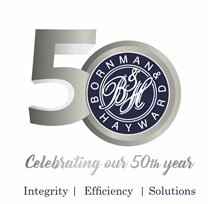Best Due Diligence Lawyers in Cape Town
Share your needs with us, get contacted by law firms.
Free. Takes 2 min.
List of the best lawyers in Cape Town, South Africa
About Due Diligence Law in Cape Town, South Africa:
Due Diligence in Cape Town, South Africa refers to the process of investigating and assessing a business or property before entering into a transaction. This legal practice aims to identify any potential risks or liabilities associated with the deal to protect both parties involved.
Why You May Need a Lawyer:
It is crucial to seek legal advice in Due Diligence to ensure that all aspects of the transaction are thoroughly reviewed and understood. A lawyer can help navigate the complexities of the process, identify potential red flags, and negotiate terms that are favorable to their client.
Local Laws Overview:
Key aspects of local laws that are particularly relevant to Due Diligence in Cape Town, South Africa include compliance with regulations, obtaining necessary permits and licenses, and conducting thorough investigations into the financial and legal standing of the business or property.
Frequently Asked Questions:
1. What is the purpose of Due Diligence?
Due Diligence aims to identify potential risks, liabilities, and opportunities associated with a business or property transaction.
2. How long does Due Diligence typically take?
The duration of Due Diligence can vary depending on the complexity of the transaction but generally takes several weeks to complete.
3. What are the common red flags in Due Diligence?
Common red flags in Due Diligence include undisclosed liabilities, regulatory compliance issues, and discrepancies in financial records.
4. Can Due Diligence uncover fraud?
Yes, Due Diligence can help uncover fraudulent activities such as embezzlement, falsified documents, and misrepresentations of financial data.
5. What are the steps involved in Due Diligence?
The steps involved in Due Diligence typically include conducting a thorough review of financial documents, legal contracts, operational procedures, and any other relevant information related to the transaction.
6. Do I need a lawyer for Due Diligence?
While it is not mandatory to have a lawyer for Due Diligence, seeking legal advice can help protect your interests and ensure a smooth transaction process.
7. How much does Due Diligence cost?
The cost of Due Diligence can vary depending on the scope of the investigation and the expertise of the professionals involved. It is recommended to discuss fees with your lawyer upfront.
8. What happens if issues are uncovered during Due Diligence?
If issues are uncovered during Due Diligence, the parties may renegotiate the terms of the transaction, seek indemnification, or terminate the deal altogether depending on the severity of the findings.
9. Can Due Diligence be conducted remotely?
Yes, Due Diligence can be conducted remotely using digital tools and online platforms to review documents and communicate with stakeholders.
10. How can I ensure a successful Due Diligence process?
To ensure a successful Due Diligence process, it is important to be transparent, maintain open communication, and work with qualified professionals who have experience in Due Diligence.
Additional Resources:
For additional resources related to Due Diligence in Cape Town, South Africa, you may consider contacting the Cape Law Society or visiting the official website of the South African Legal Practice Council for more information.
Next Steps:
If you require legal assistance in Due Diligence, it is recommended to contact a reputable law firm in Cape Town, South Africa, specializing in commercial transactions and Due Diligence processes. Schedule a consultation to discuss your specific needs and concerns with a qualified attorney who can guide you through the legal complexities of the transaction.
Lawzana helps you find the best lawyers and law firms in Cape Town through a curated and pre-screened list of qualified legal professionals. Our platform offers rankings and detailed profiles of attorneys and law firms, allowing you to compare based on practice areas, including Due Diligence, experience, and client feedback.
Each profile includes a description of the firm's areas of practice, client reviews, team members and partners, year of establishment, spoken languages, office locations, contact information, social media presence, and any published articles or resources. Most firms on our platform speak English and are experienced in both local and international legal matters.
Get a quote from top-rated law firms in Cape Town, South Africa — quickly, securely, and without unnecessary hassle.
Disclaimer:
The information provided on this page is for general informational purposes only and does not constitute legal advice. While we strive to ensure the accuracy and relevance of the content, legal information may change over time, and interpretations of the law can vary. You should always consult with a qualified legal professional for advice specific to your situation.
We disclaim all liability for actions taken or not taken based on the content of this page. If you believe any information is incorrect or outdated, please contact us, and we will review and update it where appropriate.
















